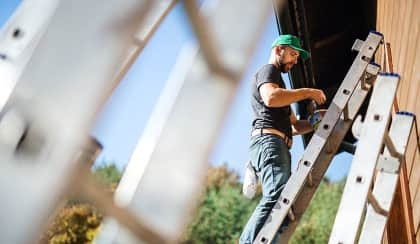Should you buy a renovator property?

Throughout Australia, longstanding construction shortages have been deterring buyers from undertaking renovation projects for some time.
But according to Herron Todd White executive director of valuation and advisory, Drew Hendry, there may be opportunities ahead for buyers who take on renovation projects.
Across a wide range of markets, agents have observed “a wider relative disparity in value between homes needing renovation work, and those that don’t”.
“There’s little doubt that high construction costs are still a major factor, driven initially by the lack of available materials and now mostly a function of reduced levels of skilled labour. These high costs have had a high material effect on the renovator market,” Hendry said.
While construction costs are high right now, he emphasised that “the cycle will move on”.
“As construction becomes more feasible, the soft demand for homes requiring work will turn around. At that time, anyone who buys wisely now could find themselves holding a savvy investment,” said Hendry.
Kevin Brogan, Herron Todd White’s head of group risk and compliance, noted that it is essential to avoid overcapitalisation when renovating a property.
“Overcapitalisation can occur when a home owner spends more improving their property than the value that is added by those improvements and can be due to a number of factors – idiosyncratic finishes that do not have a broad market appeal, a quality of finishes that significantly exceeds those typical for the market, or the layout functionality of an older property,” said Brogan.
Herron Todd White contributors noted that getting the balance of capital expenditure right is “like cooking a cake; you need to have the right recipe, otherwise it could all crumble”.
“You need to have the market knowledge to buy well, you need to understand and incorporate the planning considerations (architect fees, development approval, etc), and lastly you need to have a trusted builder that you are confident can deliver the project on time and on budget,” stated the company’s monthly report.
If any of these factors is not in place, the owner could easily end up spending more on the renovation than they should.
In Sydney, tightening profit margins has meant that investor house-flipping has become “harder and less common”.
“For most of the renovation projects we value, the owners are doing them for lifestyle purposes rather than with an eye to selling in the short term.”
“Unless you can do the works yourself and save on labour, profit margins are becoming thin,” the group stated.

